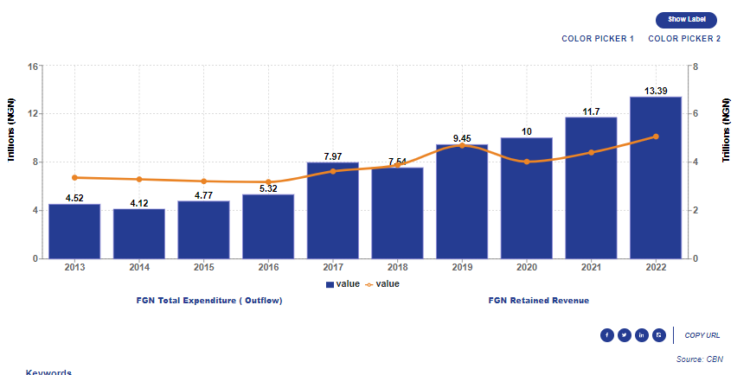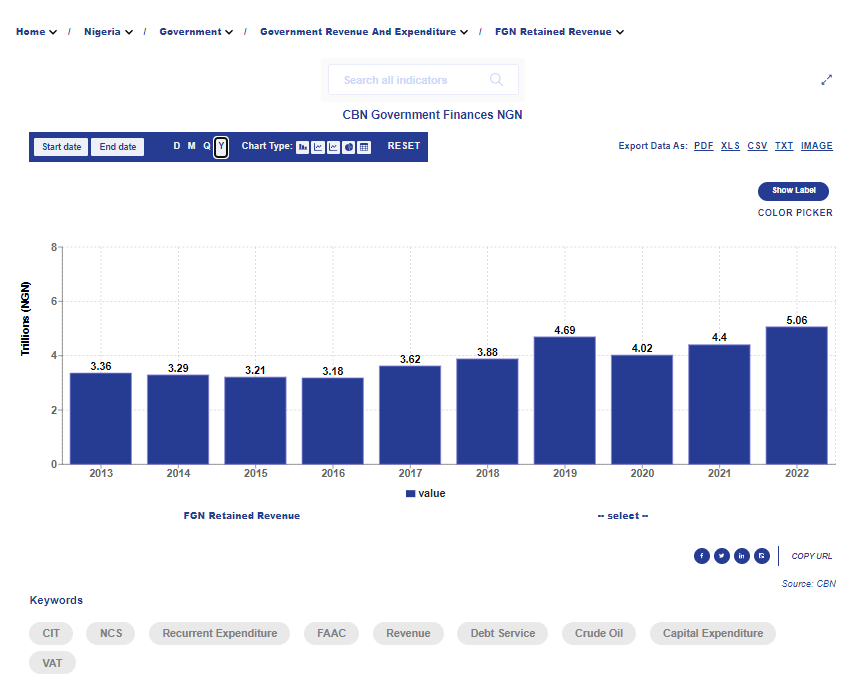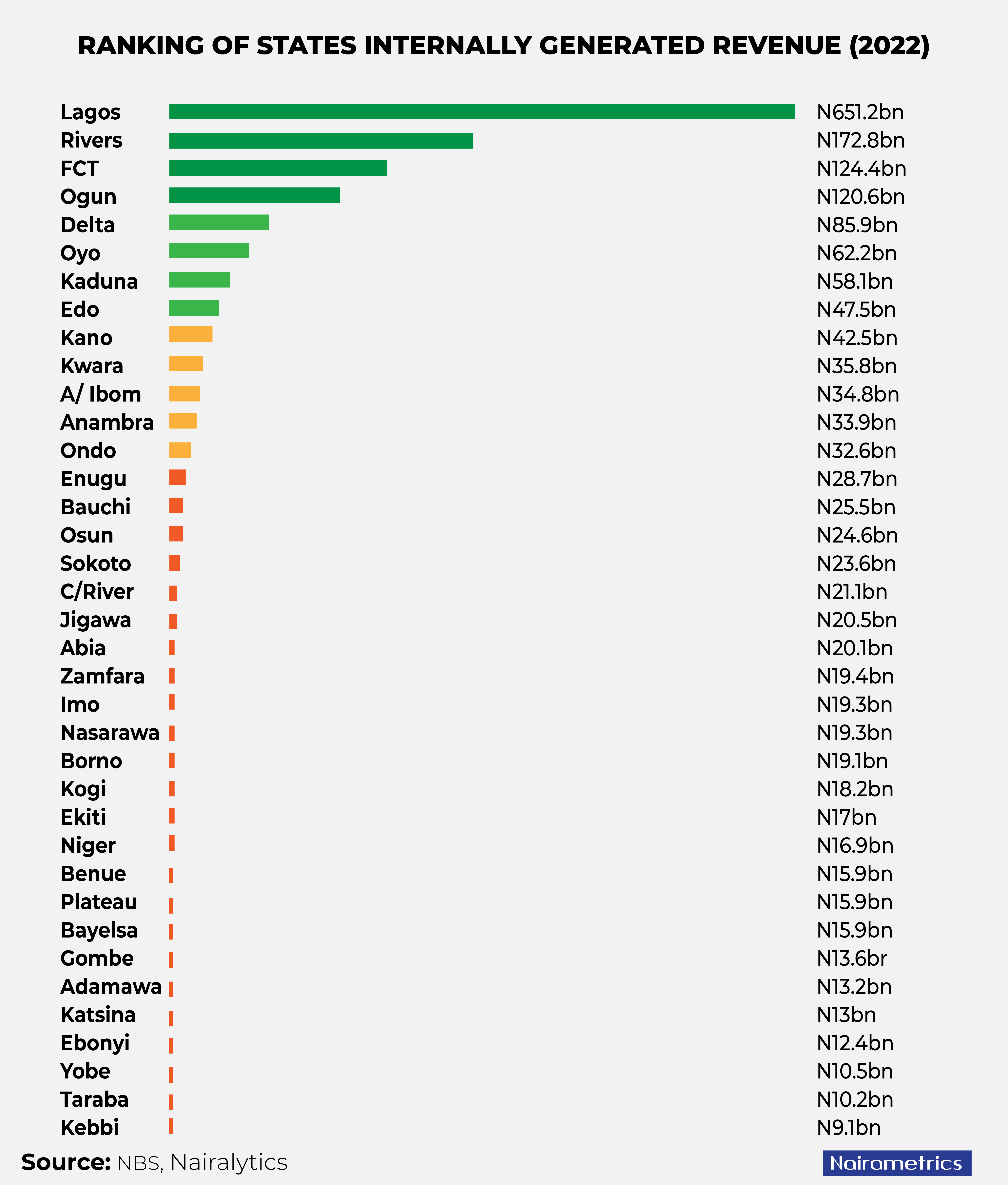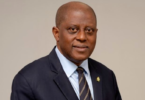Theoretically, Governments can finance their spending in three ways. First, it can raise revenue through taxes, such as personal and corporate income taxes. Second, it can borrow from the public. Third, it can simply print money.
The revenue raised through the printing of money is called seigniorage, which is the difference between the cost of printing money and the value of the money when it’s in the financial system.
Additionally, just 47% of the 2023 budget would be funded by revenue. The other part – borrowing. The makeup of the budget is also not inspiring.
1. Debt service cost of about N6 trillion represents about 31% of the Budget. This underscores the need for urgent action to address revenue underperformance and expenditure efficiency.
2. The non-debt recurrent expenditure (NDRE) of N8.27 trillion remains the largest expense in the budget (about 40%). It includes personnel cost of 4.99 trillion. That’s a problem – a quarter of the country’s budget spent on less than a million of the country’s population seems a bit horrendous especially as government workers don’t exude transparency, accountability, and efficiency.
3. Total annual revenue is estimated at N10.49 trillion ($13 billion) – Apple made more from just selling iPads ($23 billion) in 2023. Nigeria has one of the lowest government revenues in the world
4. FG’s share of oil revenue was N1.86 trillion, less than $2-4 billion depending on what exchange rate you use. But our politicians live lifestyles like we made Saudi Aramco’s $161 billion net income from oil in 2022.
5. Debt servicing and Expenditure are elevating but revenue is not elevating.


Nigeria is an oil-producing country, but many of her citizens have yet to come to terms with the cold truth that its oil proceeds cannot grow the country.
As of today, there has been only a partial recovery in oil production, to 1.57 mbpd (including condensates) in September from a low of 1.25 mbpd in September 2022, and an anticipatory moderate increase in 2024-2025, averaging 1.81 mbpd, helped by improved onshore surveillance.
However, this is still well below the 2.09 mbpd in 2019, reflecting chronic underinvestment in the sector, and likely ongoing production outages.
Overall, we have not been able to get to 2.5 million barrels per day – our supposed production capacity, but Nigeria’s population has elevated as seen in the diagram below, while oil production is going lower over the last 20 years.
So we have a sticky situation where oil is not performing to its capacity but the country’s population is growing higher.

Financially, the sub-nationals are not doing great as well. State governors are not innovative in their revenue-generating capacities.
There is nothing left after they pay salaries and do a few roads. Most states are not economically viable and are heavily dependent on FAAC.
Interestingly, they now embark on white elephant projects and build airports they cannot operate – which stretches FAAN’s resources.

The truth is Nigeria does not have the financial framework to ensure prosperity for 200 million Nigerians. There’s a note from the World Bank concerning our poor spending levels.
These numbers are not looking great. The maths is not mathing. Something needs to be done. Something has to change. The country is on a cliff – hence the uproar and strife for the 2023 Presidential elections was understandable.
From a financial lens, the top 3 candidates had antecedents that guided their financial ideologies. For the incumbent president, his antecedents are hinged on taxation and making bold financial reforms.
The runner-up, Atiku Abubakar is pro-capitalism, and pro-restructuring to give states more power and resources to deliver better outcomes for their people.
Peter Obi, who emerged third is very big on cost-cutting measures, reducing the high cost of governance and saving money/revenue.
He championed the saving of excess crude oil proceeds a decade ago which would have saved the country when macro-economic shocks came knocking.
All 3 have brilliant ideas to salvage the country’s financial problem but the debate would be which should be Nigeria’s priority given our economic realities – Should we grow the national wealth (BAT), or allow sub-nationals to grow their wealth (AA), or reduce how Government spends the current national wealth (PO).
That’s the question that should be at the forefront of our political debates.
For the President and his team, my expectations are;







